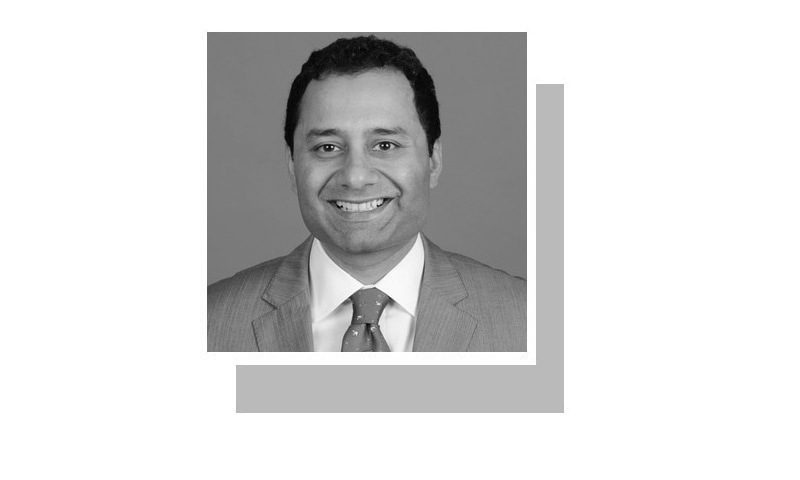IN this most awful year, finally there is some encouraging news. AstraZeneca, BioNTech-Pfizer, and Moderna, leading pharmaceutical companies, have revealed stellar results for their vaccine trials, indicating the availability of a Covid-19 vaccine as soon as January next year. Prime Minister Imran Khan has announced that his government is setting aside $100 million for purchasing the Covid-19 vaccine. But the story does not end here as the path to obtaining the vaccine is riddled with obstacles.
Covid-19 is an unprecedented public health and economic crisis for the developing world. In South Asia alone, World Bank estimates show that this pandemic will push about 50m people into poverty. In a sense, developing countries need the Covid-19 vaccine more urgently than the wealthy nations.
Procuring the Covid-19 vaccine, however, is going to test the developing world’s leaders in more ways than one. For starters, getting the vaccine is not only a financing issue; the vaccine is simply not available. A small group of wealthy nations — the US in particular — have all but cornered the Covid-19 vaccine market by placing advance orders. Oxfam estimates that a majority of the developing world will not get access to the Covid-19 vaccine until late 2022. Facing the spectre of repeated waves of Covid-19, the developing world needs to unite in seeking a people’s vaccine — universally available, free and distributed on the basis of need.
Equitable access to the Covid-19 vaccine was identified as a serious issue early on. The WHO’s Covid-19 Vaccine Global Access Facility (COVAX) was set up to ensure that the developing countries would be able to get a fair share of the vaccine by distributing it on the basis of global population. Disappointingly, the US did not join. With a population of 328m, the US has already ordered 100m doses with plans to acquire 500m more. Even those wealthy nations that did join COVAX are free to have bilateral deals with vaccine producers.
Life-saving vaccines have not always been hidden behind patents.
Some economists argue that a free vaccine cannot be provided as it violates intellectual property rights. IPR like patents and trademarks are said to provide the correct set of incentives for research and development of new technologies. A strong IPR regime is also considered a necessary foundation for efficient markets. Economists, however, have also long recognised “public goods” which are a special class of goods that benefit everyone. Generally, people cannot be excluded from enjoying a public good like clean air or a public park. For this reason, public goods are provided by the state as markets often undersupply public goods.
Social and political decisions influence which vaccines become public goods. Life-saving vaccines have not always been hidden behind patents. Jonas Salk’s polio vaccine was never patented. Moreover, 110 countries around the world produce the flu vaccine that is funded almost entirely by governments.
In the case of the Covid-19 vaccine, there is an urgent need for identifying policies for ensuring fair access for developing countries. One way in which this can be done is through a Pakistan-led developing countries’ push for converting the Covid-19 vaccine into a global public good, forcing wealthy nations to share the vaccine’s formula with pharmaceutical companies in the developing world — where the vaccine should be offered for free to those who are unable to purchase it. This policy intervention will also pave the way for the liberation of a majority of the world’s population from deadly and unjust patents on life-saving drugs.
In the meanwhile, Pakistani policymakers must take stock of their vaccine delivery systems. Given the social resistance against the polio vaccination programme, policymakers must start work on generating greater acceptance for Covid-19 mass vaccination through electronic, print and social media. Vulnerable groups should be identified within the population so that they can be vaccinated in the initial phase. Policymakers must also devise plans to train vaccinators and invest in procuring specialised equipment for maintaining the cold chain for the Covid-19 vaccine.
The pandemic is ravaging the developing world with no end in sight. Wealthy nations, in the meanwhile, have soaked up the entire supply for the Covid-19 vaccine. Big pharmaceutical companies must not hide behind patents since the Covid-19 vaccine is really a global public good. The time has come for the developing world to unite and jointly push for a people’s vaccine so that lives are not lost unnecessarily, anymore.
The writer completed his doctorate on a Fulbright scholarship. He teaches economics and public policy at Habib University, Karachi.
Published in Dawn, November 22nd, 2020














































